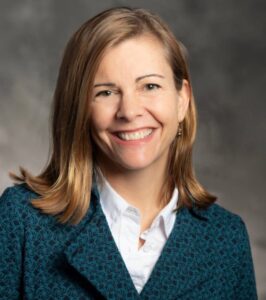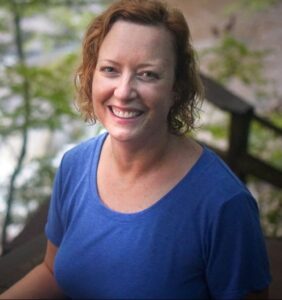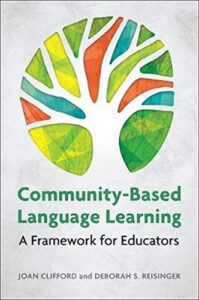A webinar presented by Deb S. Reisinger, Ph.D, Duke University and Joan Clifford, Ph.D, Duke University
September 6th, 2023, at 10 am Arizona time
Dr. Clifford and Dr. Reisinger’s Presenter Slides
Abstract:
Language programs are struggling to articulate their value to students and administrators. As career choice and credentialization continue to drive student decision-making, the decline in language enrollments seems to confirm waning interest in language learning. Language program faculty realize they must be more explicit in articulating their learning outcomes and are responding in various ways. Some programs have returned to their core values to remind students that the skills they develop in learning a language will help them become interculturally competent critical thinkers. Others have reassessed their program design by developing innovative certificates or tracks, such as Business Spanish, Translation Studies, or French for the Professions.
Despite its clear applications to career readiness and the practical nature of the service experience itself, Community-based language learning (CBLL) has not received the same strategic attention. Its development and expansion, however, present multiple ways to draw students to our programs and to clearly demonstrate how language studies will have an impact on the broader world.
In addition to framing service learning as an immersive experience oriented to social change, programs may wish to consider positioning CBLL as a place to develop transferable skills for career readiness. Our community-engaged colleagues in the STEM fields describe “client-based” and “project-based” experiences that tackle real-world problems. Why not frame CBLL within this broader context and help students make connections to their larger goals, which include career and self-development, teamwork, leadership, and professionalism?
In this webinar, presenters draw on two decades of experience in community-engaged and internship-based courses to share research-based outcomes, sample courses and modules for workplace development, and practices to develop these transferable skills within community and workspace contexts.
Bios:
 Deb S. Reisinger is Professor of the Practice of French in the Department of Romance Studies at Duke University. She is Director of Duke’s Language Outreach Initiatives, Associate Director of the Markets and Management Studies Program, and Affiliate Faculty in the Duke Global Health Institute. Deb is passionate about establishing connections between language proficiency and the disciplines. She is the author of Crime and Media in France (Purdue 2007), co-author of Community-based Language Learning (2019, with Clifford), and lead author of the textbook Affaires globales: S’engager dans le monde professionnel en francais, niveau avancé (Georgetown Press, 2021), as well as numerous articles on language pedagogy, French for the Professions, and community-based learning. She chairs the World Languages Advisory Committee to the College Board and has directed study abroad programs for over 20 years. She was recently awarded the Chevalier des Palmes Académiques from the French Republic.
Deb S. Reisinger is Professor of the Practice of French in the Department of Romance Studies at Duke University. She is Director of Duke’s Language Outreach Initiatives, Associate Director of the Markets and Management Studies Program, and Affiliate Faculty in the Duke Global Health Institute. Deb is passionate about establishing connections between language proficiency and the disciplines. She is the author of Crime and Media in France (Purdue 2007), co-author of Community-based Language Learning (2019, with Clifford), and lead author of the textbook Affaires globales: S’engager dans le monde professionnel en francais, niveau avancé (Georgetown Press, 2021), as well as numerous articles on language pedagogy, French for the Professions, and community-based learning. She chairs the World Languages Advisory Committee to the College Board and has directed study abroad programs for over 20 years. She was recently awarded the Chevalier des Palmes Académiques from the French Republic.
 Joan Clifford, PhD, is Associate Professor of the Practice in Spanish in the Department of Romance Studies and Director of Duke Service-Learning. Duke Service-Learning provides resources to faculty and staff to further purposeful university-community partnerships in academic-based community engagement. She also regularly teaches courses that include a community-based component and advises undergraduate students conducting independent research projects tied to health issues within Latine communities. Her experiences abroad include directing global education programs in Chile, Mexico, and Spain. She is co-author of Community-based Language Learning (2019, with Reisinger). Her research interests include the intersections of language and community-engaged pedagogies and intercultural communicative competency.
Joan Clifford, PhD, is Associate Professor of the Practice in Spanish in the Department of Romance Studies and Director of Duke Service-Learning. Duke Service-Learning provides resources to faculty and staff to further purposeful university-community partnerships in academic-based community engagement. She also regularly teaches courses that include a community-based component and advises undergraduate students conducting independent research projects tied to health issues within Latine communities. Her experiences abroad include directing global education programs in Chile, Mexico, and Spain. She is co-author of Community-based Language Learning (2019, with Reisinger). Her research interests include the intersections of language and community-engaged pedagogies and intercultural communicative competency.
Looking for more resources?
See the book written by the presenters:

Community-based Language Learning offers a new framework for world language educators interested in integrating community-based language learning (CBLL) into their teaching and curricula. CBLL connects academic learning objectives with experiential learning, ranging from reciprocal partnerships with the community (e.g., community engagement, service learning) to one-directional learning situations such as community service and site visits.
This resource prepares teachers to implement CBLL by offering solid theoretical frameworks alongside real-world case studies and engaging exercises, all designed to help students build both language skills and authentic relationships as they engage with world language communities in the US. Making the case that language learning can be a tool for social change as well, Community-based Language Learning serves as a valuable resource for language educators at all levels, as well as students of language teaching methodology and community organizations working with immigrant populations.
Participants attending live can request a certificate of attendance for 1.5 hours of Continuing Education during the event. They can request a digital badge after the webinar, once they are contacted by CERCLL after the event.
Participants who require closed captions or an ASL interpreter during CERCLL’s events should make this request at least a week in advance by emailing CERCLL at cercll@email.arizona.edu.

